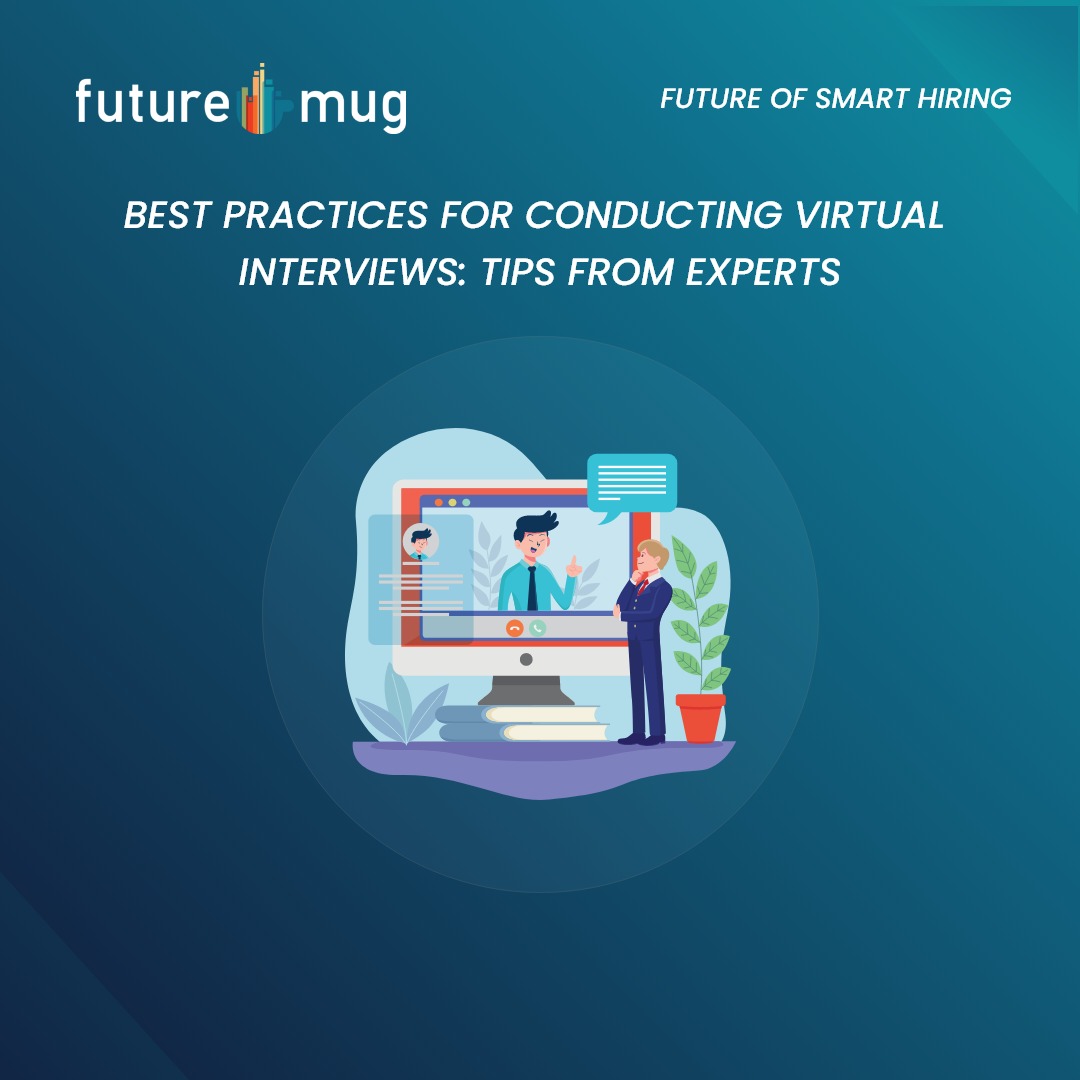
Best Practices for Conducting Virtual Interviews: Tips from Experts

According to Forbes magazine, “86% of companies conducted virtual interviews during the pandemic, and 82% of hiring managers plan to continue using virtual interviews post-pandemic due to their efficiency and convenience”.
Gartner, an American technological research and consulting firm based in Stamford, Connecticut, that conducts research on technology, predicts that “58% of organizations will use AI in their HR processes by 2024, indicating a significant shift towards AI-integrated virtual interview platforms”.
As a result of technological advancements, globalization, and post-pandemic changes in the way hiring is done, virtual interviews have become very common in organizations across industries. To get the most out of virtual interviews and make hiring decisions easy, there are many best practices that firms can follow. Before we look at those, let us look at some virtual interview benefits that organizations can enjoy.
- Convenience – The biggest benefit of virtual interviews is the convenience that it offers to both the interviewer and the candidate.There are no constraints on physical location or the need for a physical office space, and it can accommodate the schedule of participants, making it a more flexible option.
- Reduces cost – Companies need not get candidates to their offices for interviews and take care of them for the duration of the process. Candidates need not travel to attend the interviews. Thus, everyone saves money by adopting a virtual interview approach.
- Reduces time-to-hire – Due to the flexibility that it offers, virtual interviews can be scheduled and conducted faster than physical interviews.
- Access to a larger talent pool: Virtual hiring relies on a more diverse and inclusive talent pool that is not restricted by geographical limitations. Thus, companies enjoy a wider pool of prospective candidates that they can hire from.
Virtual interview best practices

Even with their many benefits, virtual interviews need to be conducted in a very organized and controlled manner. It is very easy for the interviewer and the candidate to lose their way and not get or provide the desired information during virtual interviews.
So how can one make the most of virtual interviews?
Let’s take a look at some of the best practices for conducting virtual interviews.
- Extensive preparation – Any interview or hiring process involves good preparation in order to achieve the best results. All necessary information about the candidate should be available. The job description and skills required must be clearly defined. The technologies and platforms to be used should be tested beforehand to avoid glitches. And, finally, a suitable location needs to be selected or set-up where the interviews will be conducted.
- A well-defined and structured process – Having a structured interview process that is focused on the desired outcomes will ensure that the interview is effective and help the organization make the right hiring decisions. Develop a list of questions beforehand that will provide intelligent insights into the candidate and his or her skills. Keep the conversation smooth and focused, and also cover all relevant topics. Make notes to be used as a reference while making the final decision.
- Make the interview relevant and engaging – Because it happens in a virtual setting, it is important to build a good rapport at the onset and follow it up with an engaging and relevant interview. Start informally, and once the candidate is comfortable, move ahead with the interview. Use open and empathetic body language and maintain eye contact at all times.
- Clear and uncomplicated communication – This is crucial to avoid misunderstandings and false impressions. Ensure that your thoughts and opinions are well articulated and understood clearly. It is a good practice to get consensus on the same idea multiple times during the course of the interview to ensure that everyone is on the same page.
- Using technology well – Technology should add to the effectiveness of the process, not reduce it. Use new technologies and platforms that are available to enhance the overall effectiveness of the process and make it more streamlined. Automate tasks, collect and record all necessary information, and take decisions based on data and objective criteria. AI and real-time analytics are very valuable and proven tools to enhance the effectiveness of virtual interviews.
- Follow-up and decision making – A careful and conclusive evaluation can help in making the right hiring decisions. Use a tried and tested system for rating and comparing candidates, make decisions collaboratively, and keep the candidates updated at all times regarding the next steps, progress and status of the interview.
If you want to know more about virtual interview best practices, click the following link.
https://business.linkedin.com/talent-solutions/resources/interviewing-talent/virtual-interviewing
Tips for hiring the best candidates through virtual interviews

Effective virtual hiring rests on three pillars.
Practical assessment – incorporating skill tests and simulations can give good insights into the candidate and his capabilities.
Focusing on soft skills as well – Soft skills assessment can help fill the gaps and can be crucial at the time of decision making.
Cultural alignment – By including hypothetical scenarios and behavioral questions, companies can gauge how well the candidate will fit in with the company culture and values.
Virtual hiring is a proven route for organizations to access and hire quality and diverse talent. Through the use of interview outsourcing services and external interview platforms, companies of all shapes and sizes can leverage the many benefits of virtual interviews. futuremug offers a very intuitive and AI-powered interview platform that supports virtual interviews.
https://futuremug.com/en-in/best-interview-platform-services-company-india
The above link provides everything that you need to know to embrace this amazing process.